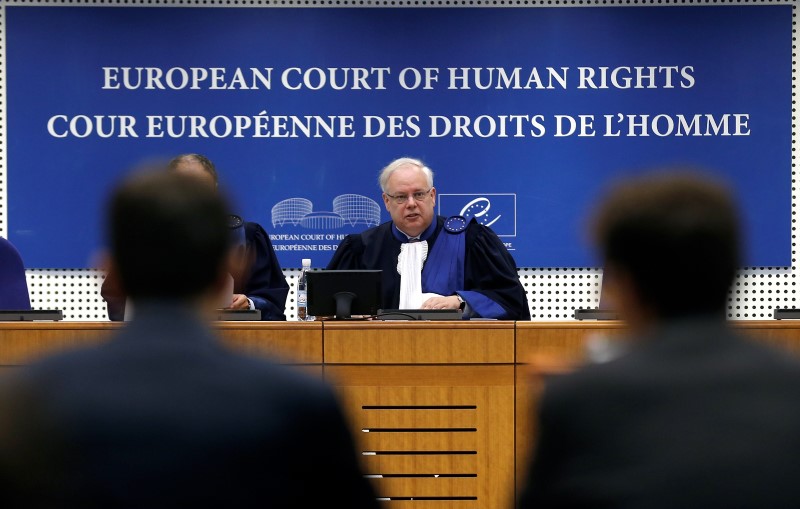By Michael Shields
ZURICH (Reuters) - The far-right Swiss People's Party (SVP) submitted a petition on Friday to cement Swiss sovereignty on legal matters over most international law, insisting citizens needed this to wrest back control from the political elite.
The SVP said its "Swiss Law, Not Foreign Judges" drive, which would force a referendum if the nearly 117,000 signatures on its petition are certified, would counter what it described as efforts to thwart Switzerland's system of direct democracy.
Critics, including the main business lobby, said a vote in favour of Swiss courts would undermine participation in the European Convention on Human Rights and harm the economy by making it harder or impossible to uphold trade pacts.
The SVP, the biggest party in parliament and the most popular in opinion polls, has often championed a Swiss-first approach, such as a successful 2014 referendum that demanded quotas on immigration, including from the European Union.
Negotiations with Brussels on how to implement that measure without violating bilateral economic accords guaranteeing free movement for EU citizens are going down to the wire.
The SVP sees such talks as an example of efforts by politicians and courts to frustrate voters' wishes by citing international law. "The intent is clear: direct democracy, a Swiss speciality in which the citizens are sovereign, should be curtailed or even cut off," an SVP statement said.
The European Court of Human Rights in Strasbourg has indeed issued decisions that trumped Swiss court rulings.
One example, in October 2015, was ruling that a Swiss court had violated a Turkish politician's free speech rights when it fined him for denying that Armenians in Turkey had been victims of genocide a century ago. The politician, Dogu Perincek, made the comments during appearances in Switzerland.
Swiss anti-racism laws, the European court ruled, infringed on Perincek's right to voice his opinion.

Right-wing figurehead Christoph Blocher and allies fired a salvo last week against negotiating closer ties, saying it would be a strategic error to join forces with such a crisis-ridden entity and let EU courts decide any disputes that arose.